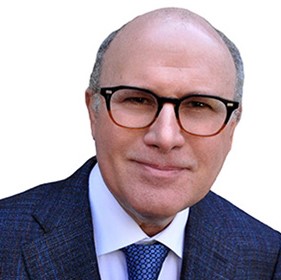
With self-driving cars, the giant global auto industry is careening toward unprecedented disruption as its 100-year-old business model is turned completely inside out.
That is the big takeaway from a research report published last week from investment banker Morgan Stanley.
In Shared Autonomy, equity analyst Adam Jonas explains how the inevitable migration from the old business model to ride-sharing and ride-hailing will transform the still-vibrant car business into a highly regulated and intensely price-competitive utility. That will mean profound changes for the way cars are sold and insured. It will also disrupt airlines, energy, real estate and utilities.
The reason is math. Traditionally, automakers have relied on simple metrics like units sold and average selling prices. Last year, 80 million cars were sold at an average price of $19,000, for a total of $1.5 trillion.
The new Silicon Valley global mobility-model places the emphasis on miles driven. Last year, approximately 10 trillion miles were driven at an average cost of $1, for a total of $10 trillion.
To get an idea of what this represents, Toyota runs the biggest car business in the world with sales of about $250 billion. Global mobility will be a business forty times that size.

Carmakers and private-equity investors can do the math, too. General Motors (GM), Volkswagen (VLKAY) and Toyota (TM) have made major investments in mobility businesses. Toyota has placed its bet with Uber. In August, the Silicon Valley super-startup announced it would begin testing a fully autonomous ride-hailing service in Pittsburgh.
Morgan Stanley analysts think autonomy is the tipping point. “We believe shared and autonomous cars can deflate the cost per mile to as little as 20 cents, triggering a doubling of global miles travelled by 2030,” Jonas says.
If You’re on Medicare, NEVER Make These 3 Mistakes …
Your insurance company is hoping you make them–and they’re banking on it–because it allows them to rip thousands of dollars out of your pocket each year.
Extra money you should NEVER have to pay …
So they work hard to make sure you never find out about these all-too-common Medicare mistakes most Americans make.
We’re going to fix that, and protect you from their schemes and tactics, by revealing these mistakes and showing you how to avoid making them, here …
At that cost, it no longer makes sense for consumers to buy vehicles. So, auto dealerships no longer make economic sense. The business-to-consumer auto insurance model collapses, given diminished risk. Ride-hailing, especially for groups, becomes cost-competitive with short, regional air travel. Skipping the TSA lines is an added bonus.
Public parking spaces become mostly obsolete, yielding huge swaths of valuable urban real estate. And the economics of electric vehicles for fleets hastens the migration away from fossil fuels, leading to an energy glut and more heavily taxed electricity infrastructure.
Despite the disruption and considerable collateral damage, the new mobility business model is gaining momentum. In 2015, there were 36,000 traffic deaths in the U.S., or 100 per day. That is an 8% uptick. Ride-hailing, later augmented with autonomy, is widely believed to be safer. President Obama announced guidelines for self-driving cars in September. California reversed an earlier decision and will allow vehicles without steering wheels and brake pedals on public roads.
Where Will YOU Be When the K Wave Crashes?
When the K Wave crashes into the American economy …You’ll either be one of the lucky few who are rich and secure; or one of the millions who are hungry, desperate, and afraid. Now you might be tempted to say, “Dow 31,000 sounds pretty good to me, Larry, I’ll just hold onto my U.S. stocks and watch them double in value.” In other words, you might be tempted to sit tight and do nothing. But sitting tight is the worst thing you could do, for three reasons … to find out what those reasons are click here before it’s too late! -Larry Edelson
There will be clear winners. “We see the greatest value in the content and data produced and consumed by the 68 million years of collective humanity trapped inside a mobile, super-computing cyborg swarm. This precious time is ripe for liberation and monetization,” Jonas writes.
That’s an artful way of making the case for:
Netflix (NFLX), Facebook (FB), Amazon (AMZN), Alphabet (GOOG) and Apple (AAPL) for content and Nvidia (NVDA), Qualcomm (QCOM), ad Splunk (SPLK) for infrastructure and data.
Best wishes,
Jon Markman

